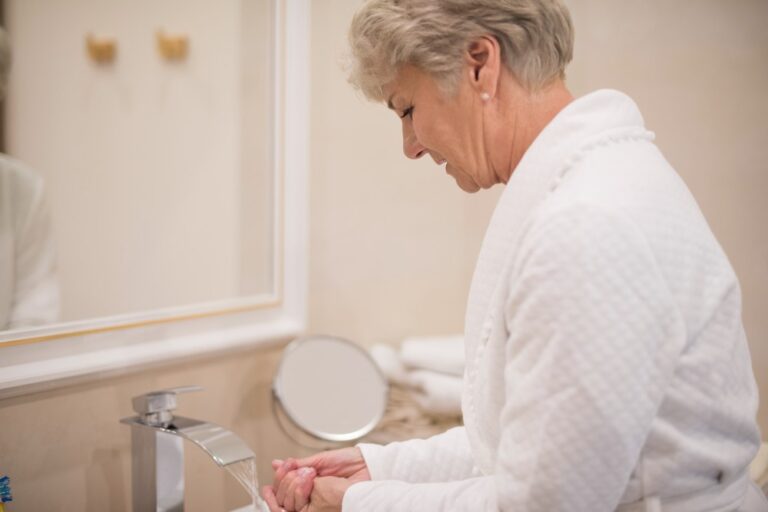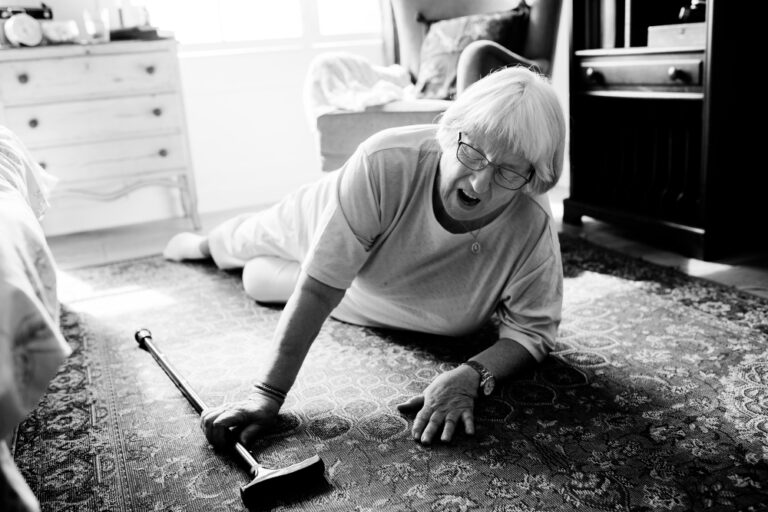As we age, maintaining cognitive function becomes increasingly important. Cognitive decline can affect memory, reasoning, and problem-solving abilities, making daily activities more challenging. However, by adopting a proactive approach to brain health, seniors in Greenville can reduce their risk of cognitive impairment and maintain mental sharpness for years to come.
From The Heart Home Care is dedicated to helping seniors stay mentally and physically active by providing personalized care and engaging activities that support cognitive health. In this guide, we will explore the causes of cognitive decline, risk factors, and practical strategies to maintain and enhance brain function.
Understanding Cognitive Decline in Seniors
Cognitive decline is a natural part of aging, but its severity varies from person to person. Mild cognitive impairment (MCI) may cause slight memory lapses or difficulty concentrating, while more serious conditions, such as dementia and Alzheimer’s disease, can significantly impact a person’s ability to perform daily tasks.
Common Causes of Cognitive Decline
Several factors contribute to cognitive decline in seniors, including:
- Aging: The brain undergoes natural changes over time, leading to slower processing speed and memory challenges.
- Chronic Health Conditions: High blood pressure, diabetes, heart disease, and obesity have been linked to an increased risk of cognitive impairment.
- Poor Diet: A lack of essential nutrients, such as omega-3 fatty acids, antioxidants, and vitamins, can negatively impact brain health.
- Sedentary Lifestyle: Physical inactivity can reduce blood flow to the brain, impairing cognitive function over time.
- Stress and Mental Health Issues: Chronic stress, anxiety, and depression can contribute to memory problems and reduced cognitive abilities.
By addressing these factors, seniors can take proactive steps to protect their brain health and maintain an active lifestyle.
Brain-Boosting Lifestyle Habits
Maintaining a healthy lifestyle is one of the most effective ways to prevent cognitive decline. The following habits can significantly improve brain function and overall well-being:
1. Stay Physically Active
Regular physical activity plays a crucial role in maintaining cognitive function. Exercise improves blood circulation to the brain, promotes the growth of new brain cells, and reduces the risk of conditions like stroke and dementia. Seniors should engage in activities such as:
- Walking or jogging
- Yoga or tai chi for flexibility and balance
- Swimming or water aerobics for joint-friendly movement
- Strength training to maintain muscle health
Aim for at least 150 minutes of moderate exercise per week to reap the cognitive benefits of physical activity.
2. Eat a Brain-Healthy Diet
Nutrition plays a fundamental role in brain health. A diet rich in antioxidants, healthy fats, and essential vitamins can help protect brain cells and reduce inflammation. Seniors should prioritize the following foods:
- Leafy greens: Spinach, kale, and broccoli provide antioxidants that support brain function.
- Fatty fish: Salmon, tuna, and sardines are rich in omega-3 fatty acids, which enhance memory and cognitive performance.
- Berries: Blueberries, strawberries, and blackberries contain flavonoids that help prevent oxidative stress in the brain.
- Whole grains: Oats, brown rice, and quinoa provide sustained energy and improve concentration.
- Nuts and seeds: Almonds, walnuts, and flaxseeds are excellent sources of vitamin E, which supports cognitive health.
3. Engage in Mental Exercises
Just as physical exercise strengthens the body, mental exercises keep the brain active and agile. Seniors should engage in activities that challenge their cognitive abilities, such as:
- Solving crossword puzzles and Sudoku
- Playing chess or card games that require strategy
- Learning a new skill, such as painting, knitting, or playing a musical instrument
- Reading books, newspapers, or engaging in meaningful discussions
- Practicing memorization techniques to enhance recall ability
These activities help create new neural pathways, improving memory retention and cognitive function.
4. Maintain Social Connections
Social interaction is vital for brain health. Engaging in meaningful conversations and building relationships can help prevent loneliness, depression, and cognitive decline. Seniors can stay socially active by:
- Participating in local Greenville senior centers or clubs
- Attending community events and volunteering
- Joining a book club or discussion group
- Staying connected with family and friends through phone calls or video chats
Building strong social networks contributes to emotional well-being and keeps the mind engaged.
Learn More: The Importance of Early Detection in Alzheimer’s and Memory Care
Healthy Sleep Habits for Cognitive Function
Quality sleep is essential for brain health. During sleep, the brain consolidates memories, repairs cells, and removes toxins that contribute to cognitive decline. Seniors should practice the following sleep habits:
- Aim for 7-9 hours of sleep per night
- Establish a consistent sleep schedule by going to bed and waking up at the same time each day
- Avoid caffeine, alcohol, and heavy meals before bedtime
- Create a relaxing bedtime routine, such as reading or listening to soft music
- Ensure the bedroom is dark, quiet, and at a comfortable temperature
Sleep deprivation can lead to confusion, forgetfulness, and reduced problem-solving abilities. Prioritizing rest can enhance cognitive function and overall well-being.
Managing Stress and Mental Well-Being
Chronic stress can take a toll on brain health. Long-term exposure to stress hormones like cortisol has been linked to memory problems and an increased risk of cognitive decline. Seniors should incorporate stress management techniques into their daily routine, including:
- Mindfulness and meditation: Practicing deep breathing and relaxation techniques can reduce anxiety and improve focus.
- Engaging in hobbies: Painting, gardening, and crafting provide a sense of fulfillment and mental stimulation.
- Spending time outdoors: Fresh air and exposure to nature can elevate mood and reduce stress levels.
- Seeking support: Talking to a friend, counselor, or support group can help manage emotional challenges.
Reducing stress through these strategies enhances mental clarity and overall cognitive resilience.
Regular Health Checkups and Medical Support
Routine medical checkups are essential for identifying early signs of cognitive decline. Seniors should:
- Monitor blood pressure, cholesterol, and blood sugar levels, as these factors impact brain health
- Discuss memory concerns with a healthcare provider
- Stay up to date with vaccinations and preventive screenings
- Consider professional home care services for additional cognitive support
Professional caregivers from From The Heart Home Care provide personalized care, companionship, and brain-stimulating activities tailored to each senior’s needs.
From The Heart Home Care: Supporting Brain Health for Greenville Seniors
At From The Heart Home Care, we understand the importance of maintaining cognitive health in aging adults. Our dedicated caregivers offer compassionate support, engaging activities, and personalized care plans designed to keep seniors mentally and physically active. Whether it’s assistance with daily tasks, cognitive exercises, or social engagement, we are here to help seniors in Greenville lead fulfilling, independent lives.
Learn More: The Role of Home Care in Supporting South Carolina’s Aging Population
Conclusion
Preventing cognitive decline requires a combination of healthy lifestyle choices, social interactions, and proactive medical care. By staying physically active, eating nutritious foods, engaging in mental exercises, and managing stress, seniors in Greenville can maintain sharp cognitive function well into their golden years.If you or a loved one need assistance incorporating brain-healthy routines into daily life, From The Heart Home Care is here to provide compassionate support. Contact us today to learn more about our services and how we can help enhance the quality of life for seniors in our community.







